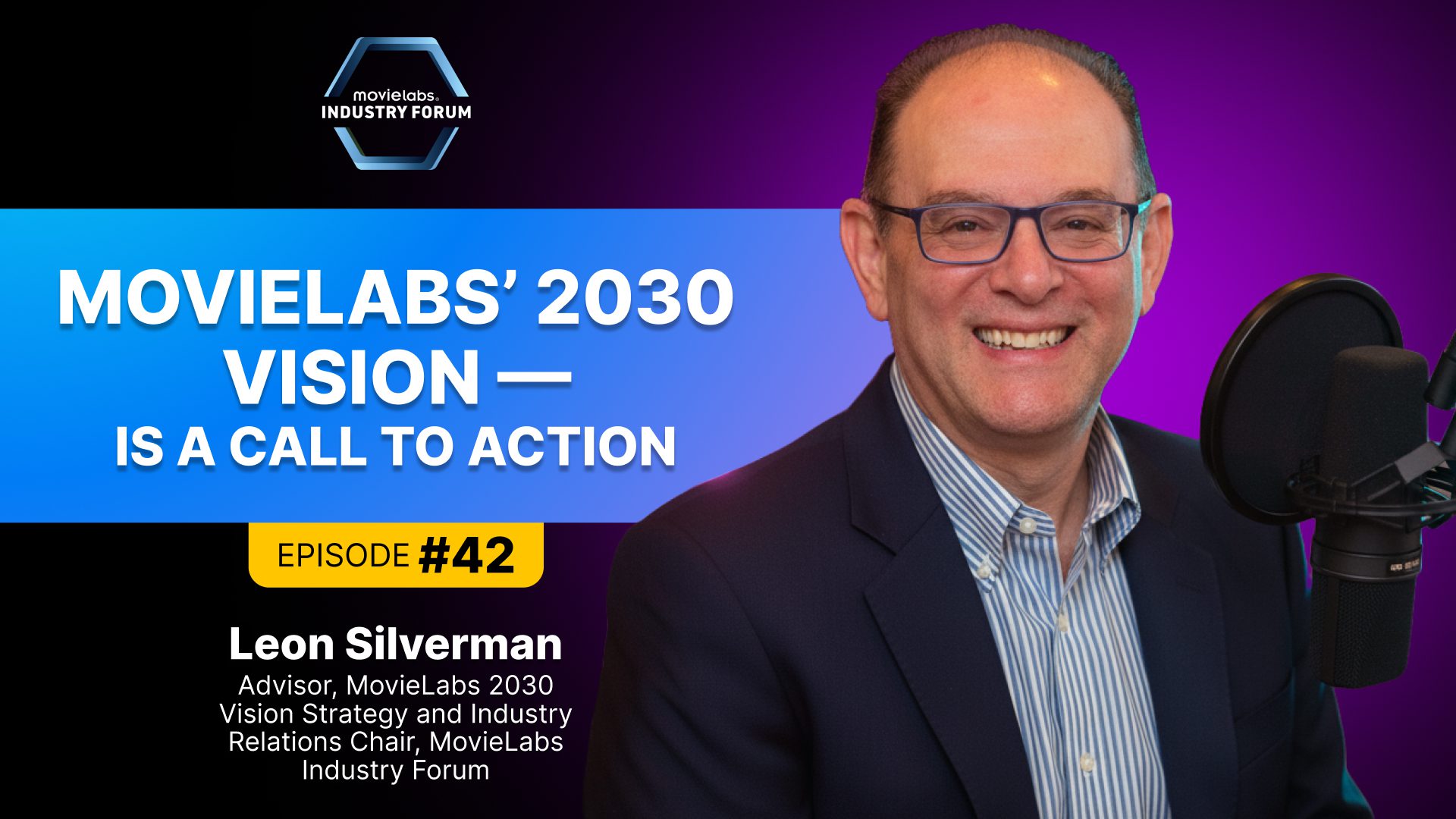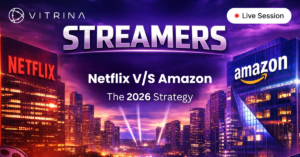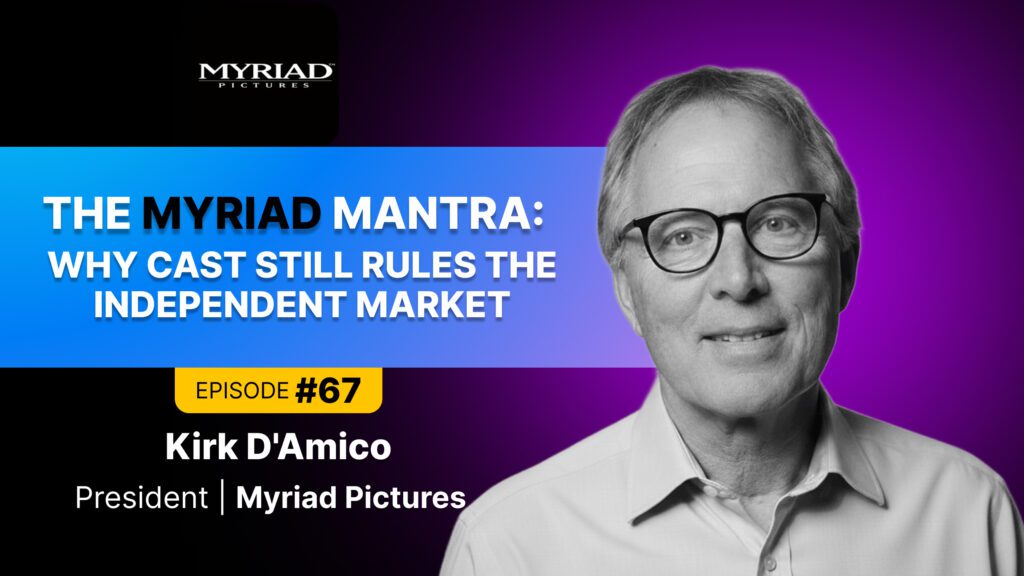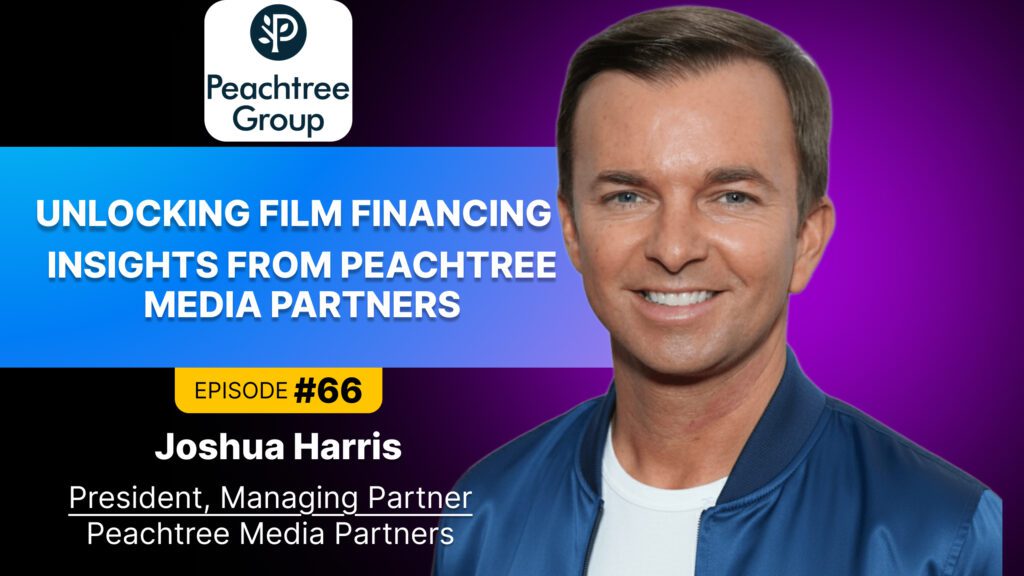What got us here won’t get us there. The tools, workflows, and infrastructures of the past need to evolve—not for technology’s sake, but to truly empower creators to tell better stories, faster and more freely.
Podcast Chapters
| Timestamp | Chapter Title |
| 00:00 | Introduction to Leon Silverman and His Impact |
| 03:03 | The Evolution of Media Technology |
| 06:12 | The Movie Labs 2030 Vision: Context and Goals |
| 09:01 | The Role of Cloud Technology in Media Production |
| 12:05 | Principles of the Movie Labs 2030 Vision |
| 17:46 | Current Progress and Industry Adoption |
| 23:51 | Case Studies and Real-World Applications |
| 30:02 | Future Directions and Community Engagement |
MovieLabs’ 2030 Vision isn’t just a roadmap—it’s a call to action. It’s about clearing the clutter, connecting the dots, and building a creative ecosystem where tools, workflows, and infrastructure finally work together.
Key Takeaways:
✅ 2030 Vision = Industry Roadmap
A unified push to modernize media workflows globally.
✅ Standardizing Workflows
From custom “snowflake” pipelines to interoperable systems.
✅ Cloud-First Approach
Assets stay in the cloud; tools come to the data.
✅ Next-Gen Security
Zero Trust and CSAP are reshaping production safety.
✅ Creativity Unleashed
All tech evolution is aimed at empowering storytellers.
Sound Bites:
🎤 “What got us here won’t get us there—it’s time to rethink how we create content.”
🎤 “The 2030 Vision is about making workflows seamless, secure, and cloud-native.”
🎤 “We’re not chasing tech for tech’s sake—we’re clearing the path for creators.”
🎤 “Plug-and-play hasn’t worked—until now. Interoperability is finally within reach.”
🎤 “If we can hand time back to creatives, we unlock a whole new level of storytelling.”
About MovieLabs Industry Forum
Why Partner With MovieLabs Industry Forum?
-
🌐 Shape the Future
Help define the standards and vision guiding next-gen media creation. -
🤝 Collaborate with Leaders
Connect with top studios, tech providers, and global innovators. -
🚀 Accelerate Innovation
Gain access to tools, case studies, and frameworks driving real change. -
🧩 Solve Technical Gaps
Align your roadmap with industry needs and shared implementation insights. -
🎬 Empower Creativity
Build systems that let storytellers focus on storytelling—not tech hurdles.
In Conversation with Leon Silverman, Chair at MovieLabs Industry Forum
This is a written version of the above podcast, summarised for quick reading. Presented in a transcript format, it repackages the full conversation in a structured Q&A style to highlight key insights.
1. Vitrina: Leon, your career spans nearly five decades across major shifts in Hollywood technology. How have you seen the industry evolve from film to digital to the current cloud-based ecosystem?
Leon Silverman:
“I’m celebrating almost 50 years in the media and entertainment business, and if I look at my career, it traces these great technological transitions — from analog to digital to cloud. I often say I feel like the Forrest Gump of media tech because I’ve had a front-row seat to it all. We went from physical film reels to nonlinear digital editing, from DVD to digital cinema, and now, to streaming and the cloud. But what’s interesting is how we still have one foot in the 100-year-old tradition of film — for instance, DCPs (Digital Cinema Packages) are still metaphorically built like film reels — and another in modern digital workflows. These shifts were never clean breaks; they were messy mashups, and each transition brought both opportunities and chaos. We started plugging digital tools into analog processes, and it created what I called ‘snowflake workflows’ — everyone’s process was different and overly complex.”
2. Vitrina: Could you elaborate on the “snowflake workflows” you mentioned? What problems did they create in the industry?
Leon Silverman:
“‘Snowflake workflows’ refer to how no two content workflows looked the same. In the 1980s and 90s, we started adding cool digital tools — like digital editing systems or early CGI — into analog filmmaking pipelines without rethinking the overall architecture. That led to complex, customized systems that required a huge amount of muscle memory to operate. Everyone was improvising — making it work, but barely. And because of this patchwork, interoperability became a massive challenge. For example, just moving a file from one post-production stage to another could take hours, or even days, because formats, systems, and metadata wouldn’t align. It was creative but inefficient — the opposite of plug and play.”
3. Vitrina: What led the major studios to align on the MovieLabs 2030 Vision, especially in a historically fragmented industry?
Leon Silverman:
“It was actually quite remarkable. Around 2019, the CTOs of the major Hollywood studios — who often couldn’t agree on things like HDR formats or digital distribution protocols — all aligned on a 10-year vision. I always say they probably couldn’t agree on where to go for lunch, but somehow they agreed on this. The tipping point was realizing that the traditional media supply chain couldn’t scale to meet the demands of new content formats, global distribution, and rapid production cycles. This vision was launched at IBC in 2019, and just a few months later, the pandemic hit — accelerating everything. Suddenly, the ideas in the vision weren’t just aspirational; they were necessary. The world shut down, and the cloud became the only way to resume work. What was once theory became proof-of-concept during COVID.”
4. Vitrina: What are the core principles of the MovieLabs 2030 Vision, and why are they significant?
Leon Silverman:
“There are 10 core principles grouped into three buckets: cloud foundations, security and identity, and software-defined workflows. Let me highlight a few:
- Principle 1 says all assets should go to the cloud and stay there — meaning we stop duplicating and moving files endlessly.
- Principle 2 says that tools should go to the assets, not the other way around. So if you’re editing or color grading, your application interacts with media in place.
- Principle 6 and 7 focus on security — particularly Zero Trust, which is now being adopted by TPN and other audit frameworks.
- Principle 10 is about real-time iteration, like using game engines or AI tools for on-the-fly visualization and post.
A great example of this in action was our HPA Tech Retreat demonstration where we showed how a script change during production could be automatically reflected across departments, triggering updates in VFX, concept art generation via AI, and editorial. That’s what interoperability and real-time look like.”
5. Vitrina: How has the industry responded to the MovieLabs vision over the last five years?
Leon Silverman:
“We’ve seen incredible traction. Studios, tool vendors, and service providers around the world are aligning their roadmaps to the 2030 principles. It’s not just Hollywood — we have members from Japan, India, Spain, France, New Zealand, and more. Even the Royal Opera House in London is applying our principles! What’s been most gratifying is the generosity — companies are sharing use cases, roadblocks, and wins. It’s like a rising tide lifting all boats. We’re also seeing this trickle into mid-tier productions, where efficiency directly impacts the creative budget. If you can save 3-5% by avoiding file duplication, that’s budget that goes back on screen.”
6. Vitrina: You’ve mentioned the MovieLabs Industry Forum. Who participates, and how does it function?
Leon Silverman:
“The Industry Forum is a global community of companies committed to implementing the 2030 vision. We launched it in early 2024 and already have members across production, post, VFX, broadcast, cloud services, and storage. We’re not just talking to technologists — we’re engaging CEOs, engineers, product managers, and increasingly, creatives. For instance, United Talent Agency is a member, and that gives us direct feedback from writers, directors, and showrunners. Everyone in the forum shares their journey, challenges, and gaps. One of the coolest outcomes is that by identifying these gaps, other companies step up and say, ‘We can solve that.’ It’s like collaborative innovation in real-time.”
7. Vitrina: Is there a certification or compliance process for becoming 2030-aligned?
Leon Silverman:
“Nope. We’re not in the business of certifying or policing. We’re about inspiring and enabling. What we offer is an assessment framework — a tool companies can use to measure how ‘2030’ they are. It’s not about being perfect; it’s about making progress. We cheer efforts, we publish case studies, and we highlight innovation. The only badge we offer is a metaphorical standing ovation for moving the industry forward.”
8. Vitrina: You referenced an ontology and a JSON structure. How can organizations use these tools?
Leon Silverman:
“Our Ontology for Media Creation (OMC) is a shared vocabulary that connects production elements — like scripts, characters, locations — to real-world production assets. Think of it as a smart map of how everything relates. For example, Mars may be a story location, but it was filmed in New Jersey with three actors, a CG model, and a stunt double — the ontology maps that all out. We’ve published it all open-source, with JSON schemas available on GitHub. Companies can plug it into their asset management or pipeline tools today. And if they have questions or want help, we’re always open to dialogue.”
9. Vitrina: How are companies adjusting their product strategies based on forum participation?
Leon Silverman:
“One CEO told me, ‘Just being in the forum changed our product roadmap.’ That’s powerful. At one forum session, a workflow automation company realized they were building for a legacy architecture — and pivoted after seeing how others were implementing cloud-native strategies. We’ve seen storage companies rethink how they handle access control. A visual effects tool provider started developing an API-first version of their app because they saw that’s what interoperability demands. So it’s not just theoretical alignment — it’s influencing real-world engineering and product planning.”
10. Vitrina: Finally, how can companies join the Industry Forum and contribute?
Leon Silverman:
“It’s simple — go to our website via the QR code we share in every presentation. The forum is for companies, not individuals, and we’re looking for those who are actively building toward the vision. If your team is experimenting with cloud, security, interoperability, or real-time tools — we want you in the room. And this isn’t just about MovieLabs. It’s about the whole ecosystem helping creators tell better stories. Because that’s the goal — not just to build tech, but to get out of the way and let creativity flourish.”





 San Francisco, United States of America
San Francisco, United States of America








